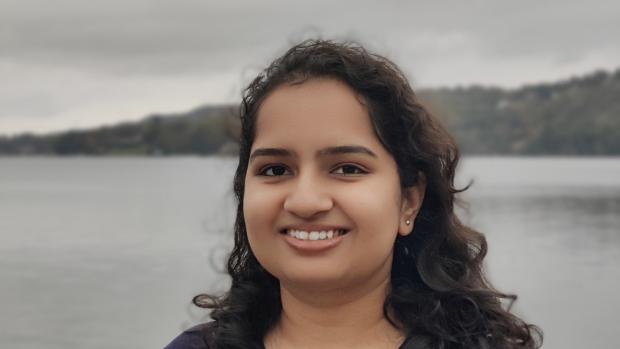NYU Tandon student wins Google PhD Fellowship for healthcare-related research

Doctoral student Vishwali Mhasawade
When Vishwali Mhasawade, a third-year doctoral student, was earning an undergraduate degree at the Pune Institute of Computer Engineering, in her native India, she volunteered with the Lok-Biradri project, in the village of Hemalkasa. The project’s aim was to improve tribal health conditions, but diagnosing disease and designing treatment was incredibly challenging, not only because of the lack of resources but because tribal members are often left out of large clinical trials. As a result, they were generally unable to benefit from medical innovations others could readily access.
Mhasawade began wondering: how could she, trained as a computer engineer and not a health practitioner, contribute? Could algorithms help us understand tribal health processes? With only limited data for algorithmic development, could machine learning models trained in data-rich regions be leveraged directly in isolated communities like the one in Hemalkasa, even if the characteristics and distributions of the people in each community are different?
Those types of questions have driven her research since then, and this year her efforts were recognized with a Google Ph.D. Fellowship, awarded annually to a select group of outstanding graduate students the tech giant has identified as representing the future of research.
Mhasawade will use the fellowship to advance her work in the Chunara Lab, run by Associate Professor Rumi Chunara, who is jointly appointed to NYU Tandon and NYU’s School of Global Public Health. “Today, data is being generated in many types, forms, and from a slew of different places,” Mhasawade explains. “An increasingly significant challenge is that the same labels (outcomes) and covariates (features) may be generated in two separate hospitals, but what they represent could be entirely different based on factors such as populations involved, varying data recording practices, and other factors that cause distribution shift in the data. Broadly speaking, samples from a single environment, for example, a hospital, are often unrepresentative of the entire population and cannot capture an underlying process of interest in all of its complexity, since the data will be specific to the context of the environment it’s sourced from.” She continued, “If we tried to build a machine learning model that makes inferences based on single-environment data, it would be limited to that scenario and, in fact, could perform poorly on new data in the same environment. At the same time, learning from multiple environments is especially important in health settings where there are growing concerns about the generalizability of machine learning models.”
“Vishwali's work is set apart from existing efforts based on her attention to not just healthcare data, but the contexts in which it is generated and used,” said Chunara. “Her work is grounded in real-world data and settings, which at the same time have inspired innovative methodologies that are practical. Her new fellowship is a well-deserved reflection of her creativity and intellectual rigor.”
Leadership skills
Part of the application process for the Google Ph.D. Fellowship required detailing not just research prowess but leadership potential. Mhasawade, an avid volunteer in the nonprofit Teach for India, wrote: “I learned about being a leader from my grandmother, who had no academic education whatsoever, but still played a crucial role in the lives of so many women in her community, helping them grow above their social burdens. She taught me that being a leader has more to do with being empathetic and dedicated to helping on a community level than having particularly exceptional skills yourself.”




